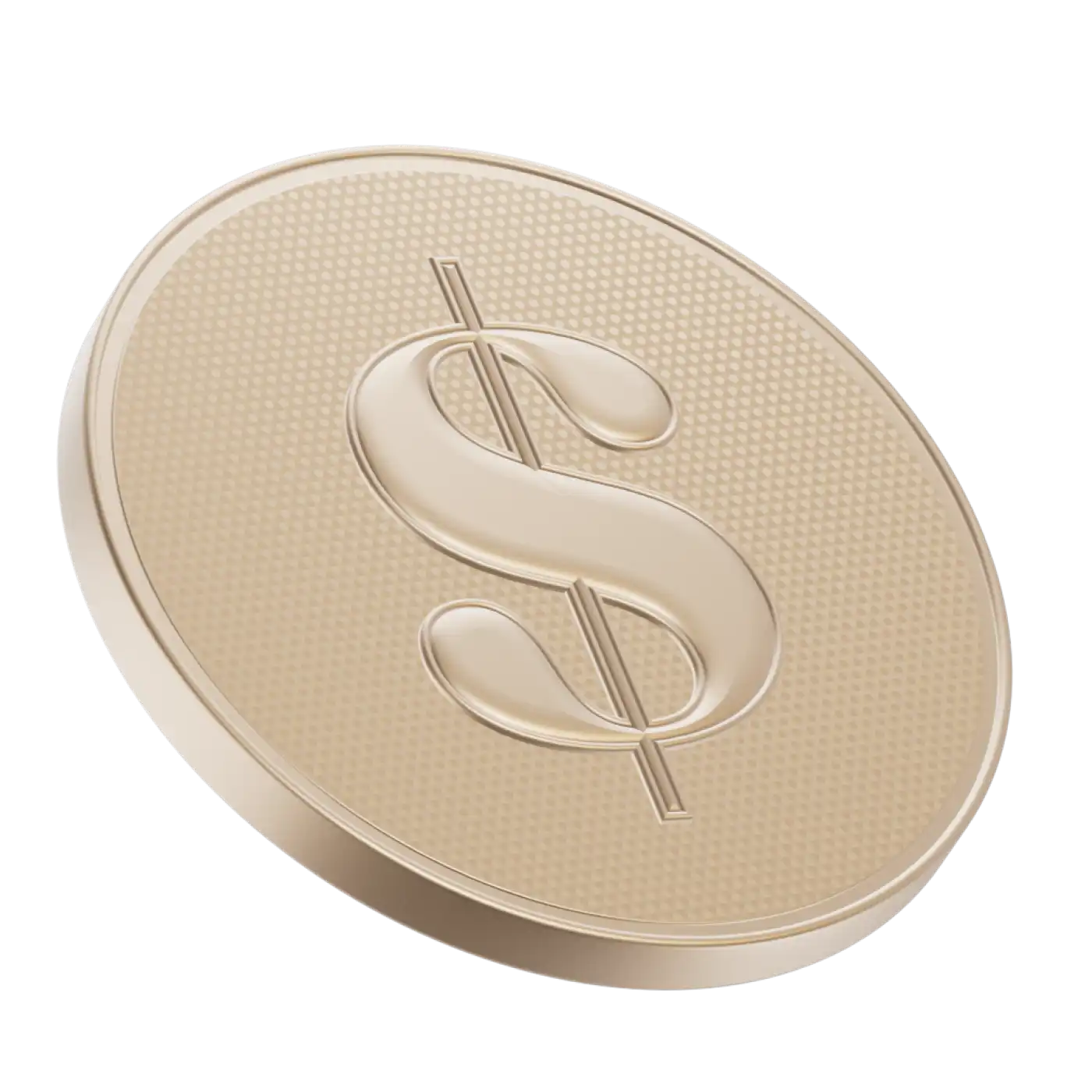A meme stock is an umbrella term for any type of investment opportunity that’s helped out by the wider power of the internet and social networks.
Meme stocks sweep the internet with investment fever; meme-stock companies become an icon around which online investment communities rally. This fervor leads people to invest not necessarily because these stocks represent a stable, long-term investment, but because they capture the zeitgeist so perfectly. People buy them to be a part of a movement.
Why they’re called meme stocks
While memes might conjure up memories of funny images or jokes, meme stocks are termed thus because of the way they spread online. Memetic communication, in a scientific sense, is when some idea that represents a community at a given time is represented in symbols or short-form communication, like images or jokes. These emotionally rich symbols, which may represent nothing more than a simple thought or feeling, can be reinterpreted and repackaged by the communities that send them, and are immediately understood as a variation on some universally understood pattern. This is why they spread so fast; most memes are a joke-and-punchline all in one and require no further examination.
A meme stock is an investment that represents that zeitgeist. The decision to buy shares in AMC or Gamestop or Dogecoin (technically a cryptocurrency rather than a stock) is to invest in that specific movement. The community may center around a thesis, and buying the investment represents a validation of that idea. Buying a share in Gamestop, for instance, is no different than sharing a Facebook event for a political rally or retweeting your favourite senator.
What separates meme stocks from regular old popular stocks is that entire communities of retail traders form around the investment to generate and share memetic content about their investments. These communities congregate online, usually on pseudonymous social media sites like Reddit or 4Chan, as well as the meme-friendly short video app TikTok. On imageboard 4Chan, the most popular board for investment is “Business & Finance,” and on Reddit, it’s the r/WallStreetBets subreddit.
r/WallStreetBets is commonly considered the focal point of the meme stock movement because meme stocks’ most influential leaders used the forum to post long investment theses about their latest trades. The messageboard started in 2012 as a reaction to Reddit’s numerous “slow and steady” investment forums, which promoted index funds above all else and preferred to leave stock-picking to the pros. r/WallStreetBets took the opposite position: Why not band together and share stock tips and relish in trading? The board quickly became the place to share “loss porn”—stories about huge trades that crashed and burned—and to predict the future of specific stocks with startling levels of detail.
When the subreddit reached about 1 million followers—they call themselves “degenerates”—in mid-2020, traders realised that they had enough capital among them to coordinate on trades. If they combined their funds, they could bend the market to their will and profit.
Another part of the meme stock story is commission-free trading apps like Robinhood or FreeTrade. Robinhood didn’t just make it easy and cheap to trade, it also made it fun. Bright colours and emojis populate its polished interface, which once sprinkled confetti across the screen to, in Robinhood’s own words, “cheer on customers through the milestones in their financial journeys.” (Robinhood later replaced the confetti with animations after concerns that it was “gamifying” investing).
The final part of the puzzle, according to some activists, is the coronavirus. Stuck at home with nothing to do, lots of people took up investing as a hobby—for some, a way to quench a thirst for sports betting and for others, a way to invest money no longer spent at restaurants or shopping malls.
The GameStop saga
One of the most prominent examples of a meme stock is GameStop, the brick-and-mortar video game store that was struggling to remain relevant as the gaming industry moved online. But in late January, 2021, grassroots investors from r/WallStreetBets snapped up Gamestop stock after a prominent user posted a dramatic investment thesis claiming that Gamestop was severely undervalued.
The investment pitch came from Keith Gill, a former financial broker from MassMutual known as Roaring Kitty online. He posted lengthy videos and essays advocating for a “short squeeze,” highlighting how large short sellers—investment firms who bet that GameStop was going to fall in value—had taken out huge positions against the stock.
Gill argued that if investors from r/WallStreetBets bought up GameStop stock en masse—which they should, because GameStop was actually severely undervalued, he claimed—the price of the stock would go up. If that happened, the hedge funds who bet against GameStop would have to buy up huge amounts of stock to prevent financial ruin, pushing the price up even further.
His theory took off, and investors started buying up the stock in droves. And it worked: GameStop stock rose from $17.15 at the start of January to highs of over $500 per share at pre-market values—before promptly crashing again at the end of the month. The r/WallStreetBets community rallied around the cause, encouraging “diamond hands” to dissuade members from selling, and telling each other they were upending traditional finance and sticking up for the little guys—retail investors.
The debacle made some investors, like Gill, multi-millionaires within a few weeks. But it also hurt a lot of traders who lost money once the bubble popped. It also hurt Robinhood, which paused GameStop trading right at the peak of the frenzy to prevent its own collapse; Robinhood had to provide extra collateral to its clearing houses to ensure that it had enough collateral to account for its exposure to the stock. The frenzy was also a crisis for the short sellers. One hedge fund, Melvin Capital, lost 53% on its investments by the end of January. It had to be bailed out by other hedge funds, like Citadel and Point72.
The growth of Dogecoin
Another example of a “meme stock” is Dogecoin. Though technically not a stock—it’s a cryptocurrency—Dogecoin exhibited many of the same features as GameStop.
Unlike a company, Dogecoin has no underlying value or defining purpose. It was created as a joke in 2013 by software developers Jackson Palmer and Billy Markus as a response to the innumerable offshoots to Bitcoin, the original cryptocurrency (and certainly a meme stock in its own right).
Dogecoin’s huge market cap is backed by little more than its memetic value. The joke in question is a chubby Shiba Inu dog, who, like Cheezburger cat a decade earlier, speaks in adorable grammatically inaccurate sentences in multicoloured Comic Sans. The image of the Shiba Inu preceded Dogecoin by about three years, and the term “doge” was popularised in a 2012 Tumblr post.
The coin quickly grew beyond its developer’s humble ambitions. In 2017, Dogecoin underwent its first boom, just as Bitcoin mania peaked for the year and hit a high of $19,500. Between October, 2017, and January, 2018, Dogecoin’s market cap rose from $115 million to $1.9 billion, an increase of about 1,552%. The developers, however, had sold all their Dogecoin years prior and didn’t profit from the market rush.
Dogecoin hung firmly onto the coattails of Bitcoin; the memetic narrative for that coin was that Bitcoin would upend finance as we know it and become the native currency of the internet. Difficult to censor and easy to trade, it became the symbol of financial resistance for proponents, and wasteful free market excess for critics.
But Dogecoin was perhaps even memier—its community made no claims of financial revolution; their spiritual leader was a dog. Since Dogecoin’s inspiration was a meme itself, it was incredibly easy to spread the word about the coin online.
After Bitcoin’s 2017 bull run turned into a massive crash, Dogecoin fever died down. Then, in 2021, when Bitcoin came back stronger than ever (and peaked at about $64,000 in the spring), Dogecoin bit back even harder. At its peak in May, a single Dogecoin was worth $0.73—back in 2018, it peaked at just $0.017. Its market cap grew to astonishing levels, too, peaking at about $90 billion.
One of the reasons why Dogecoin performed so well is that influencers started to promote the coin. Chief among them was Elon Musk, the playful CEO of Tesla and SpaceX, as well as musicians like Gene Simmons and Snoop Dogg. When Musk so much as tweeted a joke about Dogecoin, the price could rally by more than 20%. Musk then turned Dogecoin into something of a pet project, working with developers to improve the coin.
The community had its own lore, too. Dogecoin fans wanted the coin to go “to the moon” by hitting $1 on April 20—4/20, which coincided with a popular holiday for marijuana. If not $1, the lewd number $0.69 was their next favourite target. Like GameStop, these investors, most of them young, congregated on Reddit, 4Chan and TikTok, and traded the coin through crypto exchanges or on Robinhood.
Are meme stocks risky?
Determining whether meme stocks are risky depends on your tolerance for risk and the thickness of your stomach lining.
The market for meme stocks operates on entirely different premises from the rest of the market. While securities analysts pick stocks by, say, estimating the future value of the company they represent, meme stocks are picked by retail traders who get caught up in the buzz.
This makes them inherently more volatile than regular stocks, since the mood of the internet can move on in a flash—as has happened with Bitcoin numerous times.
How do I find popular meme stocks?
The internet is always on the hunt for the next meme stock. Securities analysts roam r/WallStreetBets to work out the next cause around which the internet intends to rally. Embed yourself within those communities; lurk, comment, post, or upvote or downvote, and you could influence the future of the next meme stock yourself. At its core, these are retail-led investment proposals from grassroots investors.
Are meme stocks the future of trading?
As trading gets easier and communicating online becomes more efficient, it is likely that meme stocks continue to proliferate and evolve. After all, before GameStop and Dogecoin, tech stocks were all the rage, and before that airline stocks, and before that oil stocks, and so on.
Investor-friendly trading tools, like Robinhood or Coinbase, make it cheap and easy to invest in the latest buzzy stocks, and social media sites like Reddit and 4Chan make investing fun and engaging. These apps are now so huge that public companies are realising that the retail investor can no longer be considered an afterthought. That’s why, for instance, Robinhood chose to let retail investors in on a huge share of its IPO, right alongside institutional investors.
How do I buy meme stocks?
You can buy meme stocks just like any other stock: through a brokerage. Newer apps like Robinhood popularised the process by offering commission-free trading apps that look, at least on the front-end, like instant trades (even if in reality it takes a couple of days for Robinhood to clear the stock).
If the meme investment is some other sort of investment, you may have to go elsewhere. Timeshares, for instance, were comparable to meme stocks for boomers. You can trade cryptocurrencies on exchanges like Binance or Coinbase, or through brokerages like Wealthsimple, Revolut, or Robinhood. But remember: Never invest more than you can stand to lose.




